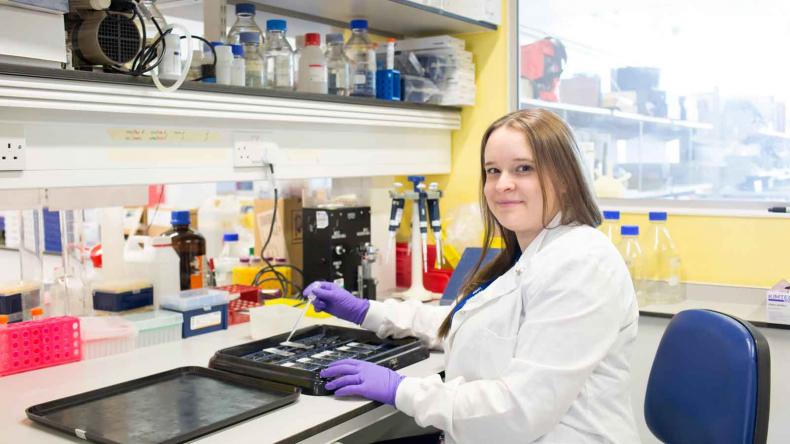Could changes in DNA during pregnancy affect MS relapses?

- Lead researcher:
- Professor Ruth Dobson
- Based at:
- Queen Mary, University of London
- MS Society funding:
- £329,696.33
- Status:
- Starting April 2024
Early research
People with MS who become pregnant sometimes experience fewer relapses, and researchers don’t yet understand why. Previous research has looked at changes in hormones and changes in the number of immune cells.
Pregnancy might also affect the way DNA is used by the cells in the body. DNA is our genetic code, which tells cells what to do. Inside the cell, DNA is packaged and marked. This affects which bits of DNA are used to make signals. Researchers think the way DNA is packaged and marked might change during pregnancy. And they think these changes might affect sections of DNA associated with MS.
About the project
The researchers will look at DNA packaging and marking in blood cells. They'll separate out specific immune cells to look at whether these changes happen only in some immune cells. They’ll find out which bits of DNA are being made into signals. And whether these change for people with MS who are pregnant.
The researchers will study blood samples from the same people during and after pregnancy, and compare them to people with MS of a similar age who are not pregnant. So, they can see what the temporary changes to DNA might be during pregnancy.
And because the researchers will also look at the DNA after pregnancy, they can find out whether there are any permanent changes. They’re particularly interested to see if any of the changes to DNA might have an effect on cells involved in the immune attack in MS.
This is the first time anyone has looked at these changes in DNA packaging and marking during pregnancy in people with MS.
How will it help people with MS?
By understanding how pregnancy can sometimes lead to a reduction in relapses for people with MS, researchers can better understand why an immune attack happens. The researchers hope this will help the development of new treatments to stop or slow MS.




